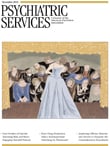A Cold Silence
Lawyers and physicians both write novels. On a recent NPR broadcast, Richard North Patterson, attorney and author, noted that attorneys write fiction because their clients tell them remarkable stories, attorneys have a high degree of intimacy with their clients, and attorneys ideally phrase their cases in "pleasing and persuasive language." Physicians, too, often write fiction—William Carlos Williams, Walker Percy, and Anton Chekhov, for example, and perhaps for similar reasons.
In A Cold Silence T. J. Thomas—a pen name; in reality he is a California neurosurgeon—has given us just such a piece of fiction. Stylistically, it is unusual in that the 40 short chapters are named and numbered in a table of contents. The novel follows a neurosurgeon, Paul Gordon, as he traverses a series of cases, fraught with perplexing, unforeseen, and poor clinical outcomes. One of the more effective devices in the book is the use of interior monologue, making us privy, if briefly, to the neurosurgeon's thoughts as he brings together disparate clues from cases gone tragically wrong into a pattern that allows him to unravel the medical mystery. Much of the internecine hospital politics described en route to the novel's denouement will be wearily familiar to clinicians and physicians who practice in hospital and clinic settings.
Other authors, who are not physicians by training, have also tried to convey what it is like to be a physician, most notably Ian McEwan in his novel Saturday. McEwan apparently shadowed a neurosurgeon for two years to try to capture the authenticity of a neurosurgical practice. Thomas attempts a greater feat, it would seem, namely to render enough explanation of neurosurgical procedures, anatomical sites, and the daily flow of practice to engage nonclinical readers while also retaining the interest of physician readers.
This novel indirectly poses the larger question of why physicians feel disposed or even driven to write fiction. Perhaps it is the wish to exit one's left brain and utilize the right brain to escape the thousand decisions of daily practice, at least temporarily, and inhabit imagination solely for the pleasure of doing so. It must have been the same desire that led William Carlos Williams to write scraps of verse on prescription pads between his patients' appointments.
T. J. Thomas' medical mystery novel, which elucidates a neurosurgeon's daily work life, may disappoint those who are looking for an intricate plot worthy of, say, a Stieg Larsson novel, and it may similarly leave physicians desiring rather less in the explicit recital of what neurosurgeons do and why they do it. However, it stands as an attempt to accurately portray the complexity of a busy neurosurgery practice. In attempting to describe the often compelling narratives of our patients, Thomas invites us to savor what Robert Coles has described as "the call of stories."



